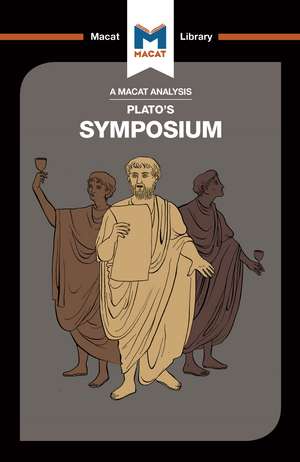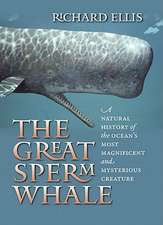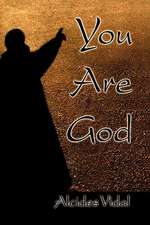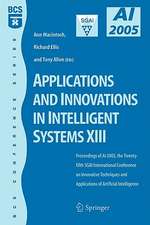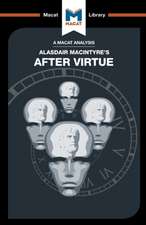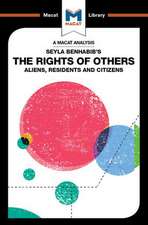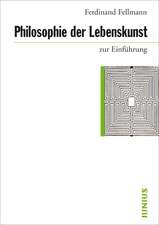An Analysis of Plato's Symposium: The Macat Library
Autor Richard Ellis, Simon Ravenscroften Limba Engleză Hardback – 25 iul 2017
| Toate formatele și edițiile | Preț | Express |
|---|---|---|
| Paperback (1) | 47.40 lei 3-5 săpt. | +5.28 lei 7-13 zile |
| Macat Library – 15 iul 2017 | 47.40 lei 3-5 săpt. | +5.28 lei 7-13 zile |
| Hardback (1) | 127.09 lei 6-8 săpt. | |
| Macat Library – 25 iul 2017 | 127.09 lei 6-8 săpt. |
Din seria The Macat Library
-
 Preț: 47.29 lei
Preț: 47.29 lei -
 Preț: 47.49 lei
Preț: 47.49 lei -
 Preț: 47.18 lei
Preț: 47.18 lei -
 Preț: 49.34 lei
Preț: 49.34 lei -
 Preț: 47.42 lei
Preț: 47.42 lei -
 Preț: 47.20 lei
Preț: 47.20 lei -
 Preț: 46.98 lei
Preț: 46.98 lei -
 Preț: 47.37 lei
Preț: 47.37 lei -
 Preț: 47.29 lei
Preț: 47.29 lei -
 Preț: 47.30 lei
Preț: 47.30 lei -
 Preț: 47.23 lei
Preț: 47.23 lei -
 Preț: 64.07 lei
Preț: 64.07 lei -
 Preț: 47.30 lei
Preț: 47.30 lei -
 Preț: 47.23 lei
Preț: 47.23 lei -
 Preț: 47.18 lei
Preț: 47.18 lei - 30%
 Preț: 32.99 lei
Preț: 32.99 lei -
 Preț: 47.13 lei
Preț: 47.13 lei -
 Preț: 47.23 lei
Preț: 47.23 lei -
 Preț: 47.26 lei
Preț: 47.26 lei -
 Preț: 47.65 lei
Preț: 47.65 lei -
 Preț: 47.37 lei
Preț: 47.37 lei -
 Preț: 47.08 lei
Preț: 47.08 lei -
 Preț: 47.18 lei
Preț: 47.18 lei -
 Preț: 47.18 lei
Preț: 47.18 lei -
 Preț: 47.27 lei
Preț: 47.27 lei -
 Preț: 47.99 lei
Preț: 47.99 lei -
 Preț: 47.23 lei
Preț: 47.23 lei -
 Preț: 47.02 lei
Preț: 47.02 lei -
 Preț: 47.23 lei
Preț: 47.23 lei -
 Preț: 47.42 lei
Preț: 47.42 lei -
 Preț: 47.30 lei
Preț: 47.30 lei -
 Preț: 47.13 lei
Preț: 47.13 lei -
 Preț: 47.10 lei
Preț: 47.10 lei -
 Preț: 47.20 lei
Preț: 47.20 lei -
 Preț: 46.98 lei
Preț: 46.98 lei -
 Preț: 47.08 lei
Preț: 47.08 lei -
 Preț: 47.29 lei
Preț: 47.29 lei -
 Preț: 47.15 lei
Preț: 47.15 lei -
 Preț: 47.29 lei
Preț: 47.29 lei -
 Preț: 64.24 lei
Preț: 64.24 lei -
 Preț: 46.98 lei
Preț: 46.98 lei -
 Preț: 47.40 lei
Preț: 47.40 lei -
 Preț: 47.87 lei
Preț: 47.87 lei -
 Preț: 47.42 lei
Preț: 47.42 lei -
 Preț: 47.33 lei
Preț: 47.33 lei -
 Preț: 47.40 lei
Preț: 47.40 lei -
 Preț: 47.40 lei
Preț: 47.40 lei -
 Preț: 46.98 lei
Preț: 46.98 lei -
 Preț: 47.20 lei
Preț: 47.20 lei -
 Preț: 47.21 lei
Preț: 47.21 lei
Preț: 127.09 lei
Preț vechi: 153.76 lei
-17% Nou
Puncte Express: 191
Preț estimativ în valută:
24.32€ • 25.39$ • 20.13£
24.32€ • 25.39$ • 20.13£
Carte tipărită la comandă
Livrare economică 05-19 aprilie
Preluare comenzi: 021 569.72.76
Specificații
ISBN-13: 9781912303120
ISBN-10: 1912303124
Pagini: 112
Dimensiuni: 129 x 198 mm
Greutate: 0.29 kg
Ediția:1
Editura: Macat Library
Colecția Macat Library
Seria The Macat Library
ISBN-10: 1912303124
Pagini: 112
Dimensiuni: 129 x 198 mm
Greutate: 0.29 kg
Ediția:1
Editura: Macat Library
Colecția Macat Library
Seria The Macat Library
Cuprins
Ways in to the Text Who was Plato? What does Symposium Say? Why does Symposium Matter? Section 1: Influences Module 1: The Author and the Historical Context Module 2: Academic Context Module 3: The Problem Module 4: The Author's Contribution Section 2: Ideas Module 5: Main Ideas Module 6: Secondary Ideas Module 7: Achievement Module 8: Place in the Author's Work Section 3: Impact Module 9: The First Responses Module 10: The Evolving Debate Module 11: Impact and Influence Today Module 12: Where Next? Glossary of Terms People Mentioned in the Text Works Cited
Notă biografică
Dr Richard Ellis is a Lecturer in the Department of Classics at the University of California Los Angeles. His research interests include all areas of ancient Greek philosophy, with a specialisation in the Pre-Socratics, as well as the intersections between early Greek philosophy and literature and the philosophy of the 17th century British writer John Locke.
Dr Simon Ravenscroft is research fellow at the Von Hügel Institue for for Critical Catholic Enquiry at the University of Cambridge. His research interests sit at the intersection of theology, philosophy, literature, and political and social theory. His doctoral dissertation was on the philosophical and theological underpinnings of the social theory of the radical social theorist Ivan Illich.
Dr Simon Ravenscroft is research fellow at the Von Hügel Institue for for Critical Catholic Enquiry at the University of Cambridge. His research interests sit at the intersection of theology, philosophy, literature, and political and social theory. His doctoral dissertation was on the philosophical and theological underpinnings of the social theory of the radical social theorist Ivan Illich.
Descriere
Plato’s Symposium, composed in the early fourth century BC, demonstrates how powerful the skills of reasoning and evaluation can be. Known to philosophers for its seminal discussion of the relationship of love to knowledge, it is also a classic text for demonstrating the two critical thinking skills that define Plato’s whole body of work
